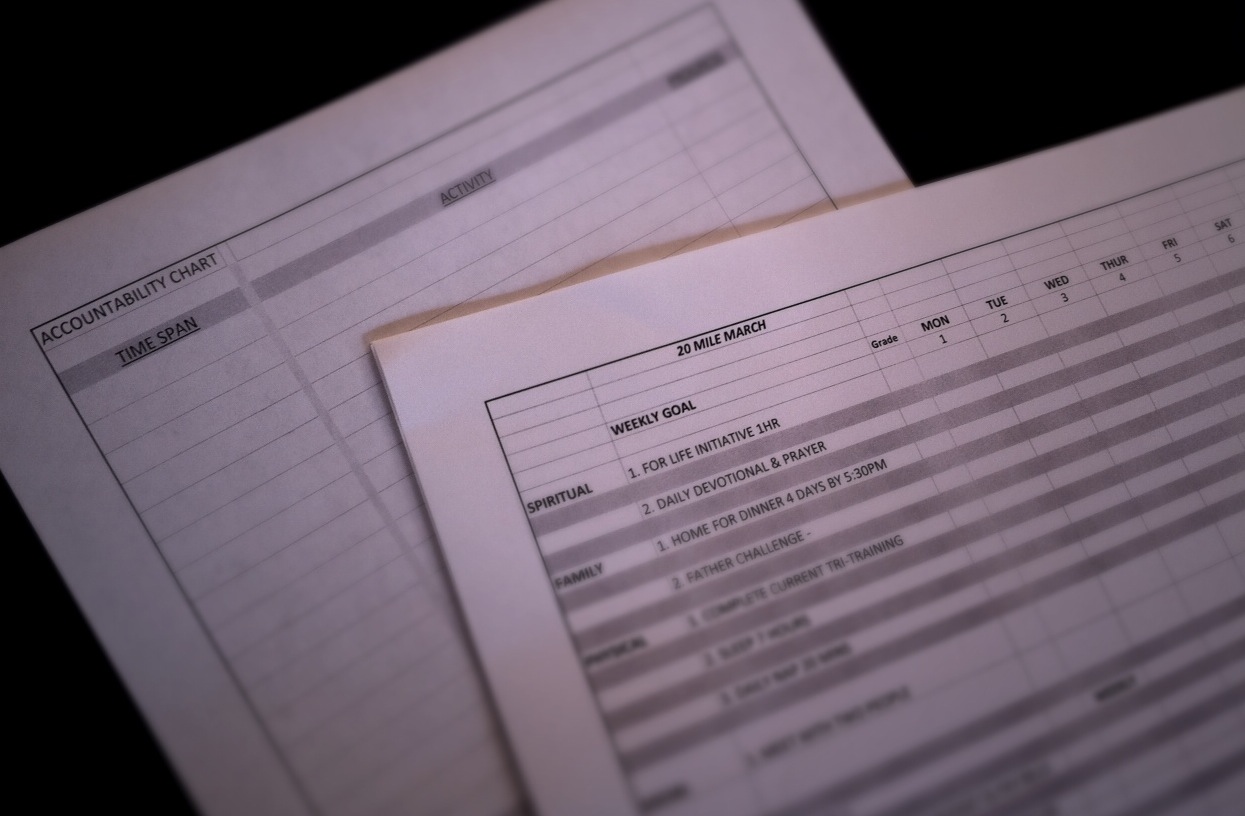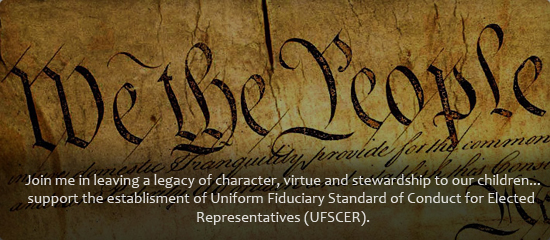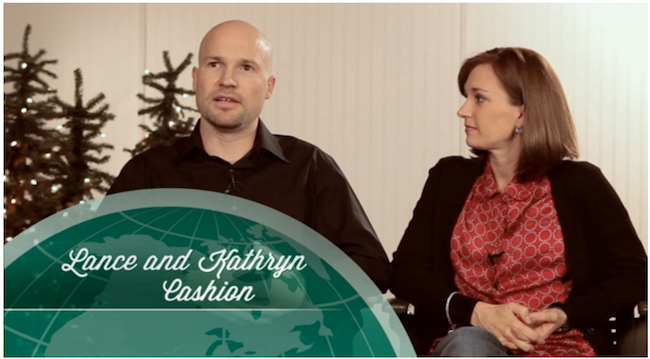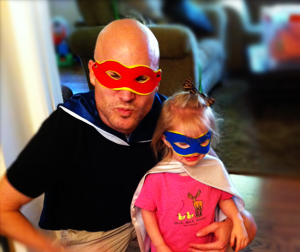
by Lance Cashion | Apr 3, 2013 | Education, Goal Setting, Lance's Philosophy, Personal Growth, Productivity, Uncategorized, Wisdom
“In October 1911, two teams of adventurers made their final preparations in their quest to be the first people in modern history to reach the South Pole. For one team, it would be a race to victory and a safe return home. For the second team, it would be a devastating defeat, reaching the Pole only to find the wind-whipped flags of their rivals planted 34 days earlier, followed by a race for their lives — a race that they lost in the end, as the advancing winter swallowed them up.” (Jim Collins and Morten T. Hansen – Great by Choice)

The teams that raced to the South Pole were essentially identical dealing with identical environmental challenges. However, one succeeded and the other failed. The winner showed ‘self-control in an out-of-control world’. Dispelling the illusion of control and practicing self-discipline are keys to getting to where you want to go.
Jim Collins describes the steady disciplined commitment toward the goal as the ‘20 Mile March‘. No matter the weather conditions, you get up and march 20 miles. No more and no less. Regardless of talent, favorable or unfavorable conditions, or luck, the 20 Mile March yields success.
(more…)

by Lance Cashion | Feb 14, 2013 | Lance's Philosophy, News, Politics, Stewardship, UFSCER |
Below is a draft letter I penned in June of 2013. I was sorting through some old files and uncovered it. I never got around to submitting it. However, I had to ask the question; ‘Is this 5 year old document still relevant today?” The answer is ‘yes’ and probably more so than in 2013. So, I decided to repost it for your consideration.
Uniform Fiduciary Standard of Conduct for Elected Representatives (United States of America)
Submitted by: Lance Cashion (Fort Worth, Texas)
June 6, 2013
Introduction:
As a citizen of these United States, I kindly request the Representatives from my state and district submit, for the Congressional Record (Extensions of Remarks Section), a proposal for the establishment of a Uniform Fiduciary Standard of Conduct for Elected Representatives (UFSCER) serving in the Federal Government.
It is my belief that my countrymen will support this measure. The American citizenry demand a uniform standard of conduct to which the actions of our elected representatives can be measured. We the People expect our elected representatives to uphold the highest moral and ethical standards in regard to executing their sworn duties as representatives in addition to upholding and protecting the U.S. Constitution. Note: Elected representatives in the Legislative and Executive branches would be subject to UFSCER.
As of this writing, the trust between the electorate and the elected has eroded to the point that the relationship has become adversarial. The citizenry lack the assurance/confidence that our elected representatives are acting in our best interest. Furthermore, evidence strongly suggests that conflicts of interest hinder the ability of our elected officials to properly represent the interests of the citizenry. As a concerned citizen, it is my responsibility to bring this issue to Congress and the American people.
Background (2013):
I am President and CEO of Cashion Financial, LLC. I serve as a Financial Advisor and licensed Life & Health Insurance Broker in the great State of Texas. I am a Series 65 licensed Investment Advisor Representative. In my chosen profession, I must adhere to the fiduciary standards contained in the US Investment Advisers Act of 1940. It is my choice to adhere to a standard of conduct where I am bound by law to serve/act in the best interests of my clients. In addition, I must disclose and attempt to eliminate any potential conflicts of interest. I constantly undergo the rigors of examination, compliance, licensing, continuing education and regulation in my field. I choose to subject myself to this in order to serve in my clients’ best interest, many of whom are unable to completely understand the full spectrum of the financial world.
In the totality of the US economy, I manage very little. To my clients, the assets placed under my stewardship represent everything they have to financially support themselves. As elected representatives, you manage trillions of taxpayer dollars. It seems logical and reasonable to me that a fiduciary standard of conduct be created, upheld and enforced.
Definitions: Fiduciary & Fiduciary Duty
A Fiduciary is a legal or ethical relationship of trust between two or more parties. In a fiduciary relationship, one person, in a position of vulnerability, justifiably vests confidence, good faith, reliance and trust in another whose aid, advice or protection is sought in some matter. In such a relation good conscience requires the fiduciary to act at all times for the sole benefit and interest of the one who trusts. http://en.wikipedia.org/wiki/Fiduciary
Fiduciary – 1) n. from the Latin fiducia, meaning “trust,” a person (or a business like a bank or stock brokerage) who has the power and obligation to act for another (often called the beneficiary) under circumstances which require total trust, good faith and honesty. A fiduciary is held to a standard of conduct and trust above that of a stranger or of a casual business person. He/she/it must avoid “self-dealing” or “conflicts of interests” in which the potential benefit to the fiduciary is in conflict with what is best for the person who trusts him/her/it. http://dictionary.law.com/default.aspx?selected=744
A Fiduciary Duty is a legal duty to act solely in another party’s interests. Parties owing this duty are called fiduciaries. The individuals to whom they owe a duty are called principals. Fiduciaries may not profit from their relationship with their principals unless they have the principals’ express informed consent. They also have a duty to avoid any conflicts of interest between themselves and their principals or between their principals and the fiduciaries’ other clients. A fiduciary duty is the strictest duty of care recognized by the US legal system. http://www.law.cornell.edu/wex/fiduciary_duty
Uniform Fiduciary Standard of Conduct for Elected Representatives (UFSCER) is Reasonable, Logical and Necessary:
I manage assets and perform duties on behalf of my clients. Federal law requires me to adhere to a fiduciary standard of conduct laid out in the US Investment Advisers Act of 1940. The Security and Exchange Commission (SEC) operates under a presidentially-appointed Commissioner and is funded by taxpayer dollars (including a SEC Division of Enforcement). Therefore, a portion of my federal income tax pays the SEC to regulate and enforce the Investment Advisers Act of 1940 under which I operate my business.
As elected representatives you also manage assets (budgets, tax revenues, etc) and perform duties for your ‘clients’ (legal citizens of the United States). While most elected representatives take an oath of office (Constitution, Article 6 – Debts, Supremacy, Oath – Oath or Affirmation), there exists no Federal Law establishing uniform standard of conduct where elected representatives are required to act in the best interests of the citizenry and disclose and attempt to eliminate all possible conflicts of interest.
It is reasonable, logical and necessary to establish UFSCER on a Federal level because elected representatives are essentially acting in a fiduciary role. Representatives by definition serve/act on the behalf of others. In addition, the responsibility of managing taxpayer funds/budgets is cause enough for UFSCER.
Conclusion:
This letter represents a preliminary call to further discourse in regard to establishing Uniform Fiduciary Standard of Conduct for Elected Representatives (UFSCER). My goal is to raise awareness of need of UFSCER. I do not know what the final framework will look like or how it will be enforced, I have ideas. However, that does alleviate the need. There must be a uniform standard to which we can measure in whose best interest our elected representatives are working.
The American people demand and deserve elected representatives who serve our best interests to the highest moral and ethical standards while doing everything in their power to disclose and eliminate all potential conflicts of interest. This is a model of stewardship that must be passed down to our children and grandchildren, lest we become a lesser generation of Americans than our predecessors. I encourage you to join me in leaving a legacy of character, virtue and stewardship to our children.
In the final analysis, one who is unwilling to accept accountability is unfit to represent the interests of others.
Kind Regards,
Lance A. Cashion
Fort Worth, Texas, USA
© 2013 BY LANCE CASHION – NOT FOR PUBLIC USE
This draft version cannot be disseminated, cited or quoted. Unauthorized distribution is prohibited.

by Lance Cashion | Dec 20, 2012 | Christian Financial Advice, Education, Generosity, God, Jesus Christ, Lance's Philosophy, Leadership, Personal Growth, Stewardship, Tithing, Uncategorized, Wisdom |
Testing God: He challenges us to test Him through tithing
“Bring the whole tithe into the storehouse, that there may be food in my house. Test me in this,” says the LORD Almighty, “and see if I will not throw open the floodgates of heaven and pour out so much blessing that you will not have room enough for it.” (Malachi 3:10)
Below is a video interview for Christ Chapel Bible Church Christmas 2012 sharing our stewardship journey.
Lance and Kathryn Cashion-QuickTime H.264 from Christ Chapel Bible Church on Vimeo.
In Tithing Part 2, I explained the mechanics and process of tithing from my perspective. Remember our focus should be on God through faithful stewardship. Tithing is not ‘Tipping God’; it is an act of obedience and worship that reminds us of our place in God’s economy. I can find no other instance in Scripture where God encourages us to test him except in regard to the Tithe.
Listen to me very carefully. I can give you dozens of examples in my life where I tithed on our income, knowing in the back of my mind that I did not have enough money left over to pay our bills. The first time this happened, I nearly came to tears in a state of panic and fear. I thought to myself, “What did I just do? I don’t have enough money left to pay our mortgage, buy groceries, etc.” I felt like an acrobat working without a net. Do you know what I learned at that moment? I had no other choice but to depend on God’s promise of provision (see Luke 12:22-34) (more…)
by Lance Cashion | Dec 17, 2012 | Family, Lance's Philosophy, Leadership, Personal Growth, Uncategorized, Wisdom |

The recent events at Sandy Hook Elementary in CT last week have compelled me to complete a post that I have been working on for a several weeks. There is a crisis occurring in our culture and I am going to attempt to engage the problem as I see it. Before I dive into to this topic, I warn you that I am not going to be ‘Politically Correct’ or coddle post-modern ideals. I am going to paint with a broad brush and speak to the overall culture in general. I’m going to give it to you straight as I see it. My goal is to get you thinking and end with a relevant call to action.
It goes without saying that there are some exceptions to what is occurring culturally.
The question put to our generation is this:
“Are we lesser sons of greater fathers in whose mighty company we are ashamed to stand?” (Bill Whittle paraphrasing a line from the Lord of The Rings)
The Greatest Generation gave birth to the most selfish narcissistic bunch of victims the world has ever seen. The Selfish Generation has enslaved their own grandchildren with their appetite for immediate self-gratification and the pursuit of materialism. A growing number of young adults suffer from a lack or purpose, depression and other disorders. That correlates with the fact that we have turned freedom into license and a man who once worked to provide for his family two generations ago no longer has to work. He has been replaced by the state or still lives with his parents and has developed a sense of entitlement. (more…)





